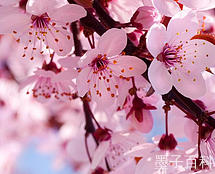
- Flowers
- Flowers are the reproductive structures found in flowering plants (angiosperms).
- They serve the important function of producing seeds, which ensures the continuation of plant species.
- Flowers are classified into various types based on their structure and arrangement.
- Structure
- A typical flower consists of four main parts: sepals, petals, stamens, and pistils.
- Sepals are the outermost structures that protect the developing bud.
- Petals are usually colorful and attract pollinators like bees, birds, or butterflies.
- Stamens are the male reproductive organs, responsible for producing pollen.
- Pistils are the female reproductive organs, which contain the ovary that houses the egg cells.
- Pollination
- Pollination is the process by which pollen is transferred from the stamen to the pistil.
- This transfer can occur through wind, water, or by pollinators.
- Successful pollination leads to fertilization and the formation of seeds.
- Significance
- Flowers have immense ecological, economic, and cultural importance.
- They play a crucial role in attracting pollinators, which contributes to plant reproduction and biodiversity.
- Flowers are widely used in various industries, including agriculture, medicine, and perfumery.
- Additionally, flowers hold symbolic meanings and are often used in celebrations, rituals, and expressions of love.














